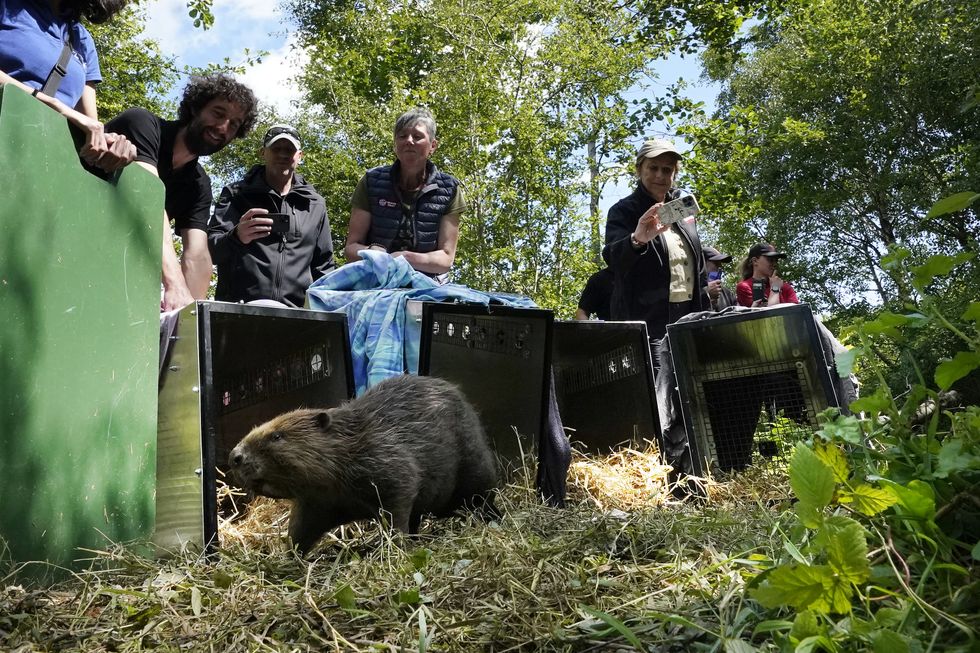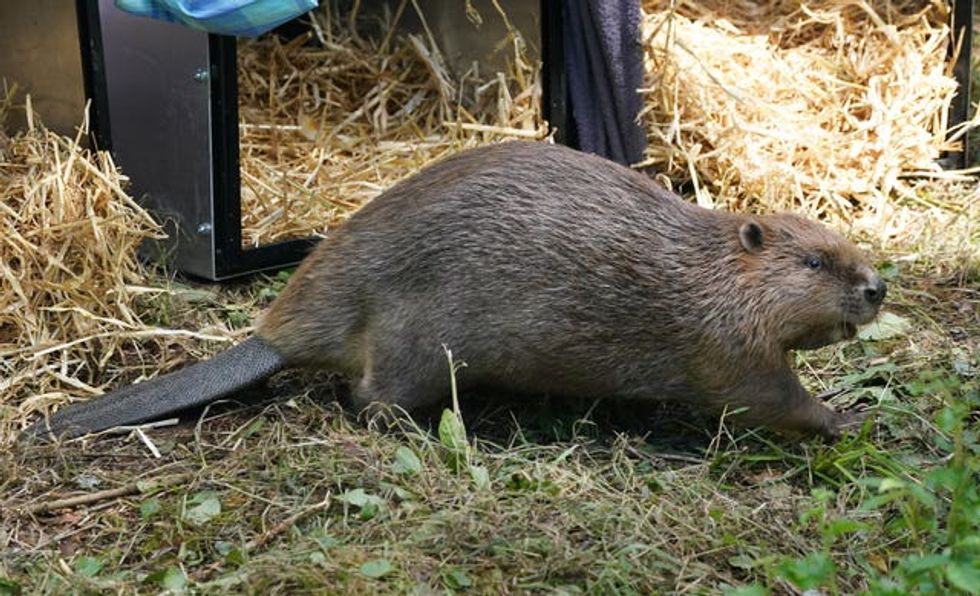Tom Wilkinson
Jul 12, 2023

Beavers are released at Wallington Estate in Northumberland in a project to improve local biodiversity and mitigate the effects of climate change (Owen Humphreys/PA)
PA Wire/PA Images - Owen Humphreys
A family of four beavers has been released on a National Trust estate to boost wildlife and help the landscape deal with climate change.
Once a mainstay of British rivers, beavers became extinct here in the 16th century due to hunting, but in recent years they have been introduced at a growing number of sites in the UK.
The latest location is Northumberland’s Wallington Estate, site of the National Trust’s third beaver release, following successful introductions on Exmoor in 2020 and the South Downs in 2021.

Watched from the other side of the bank by rangers, wildlife experts and the media, the four beavers walked straight into the stream and began to eat willow branches that had been left for them, although the father seemed initially spooked and at first retreated back to his crate.
This release of two adults and two young which were relocated under licence from Tayside in Scotland will become one of the few beaver populations in northern England.
They will make their home in a 24-hectare fenced enclosure on an upland tributary of the River Wansbeck, transforming the landscape with their dams.
Paul Hewitt, countryside manager at the National Trust, said: “Much as they did centuries ago, these instinctive animals will engineer the landscape, creating a dynamic system of dams and ponds that, over time, will become a lush wetland, brimming with life.
“The BBC’s Wild Isles was a powerful reminder of the beauty – and critically, the scarcity – of British wildlife.

“If we are to make sure those amazing natural spectacles don’t become a thing of the past, we have to create space for wildlife to thrive.
“Beavers are a fantastic tool to help us do that; where they go, fish, insects, birds and amphibians follow.”
By creating pools on the stream, they mitigate the effect of climate change by slowing the speed of water coursing through during heavy rains, and holding water in the location during drought.
Dr Roisin Campbell-Palmer, who led the release for the Beaver Trust, said: “What’s really interesting in relocating these animals to the enclosure at Wallington today is the upland stream setting, a recovering, formerly heavily grazed landscape.
“Wallington is a great example of exactly where we want these animals to be reintroduced, to demonstrate their ability to restore natural processes and where they are very likely to produce a textbook example of landscape scale beaver benefits: slowing and storing water, boosting biodiversity, and promoting woodland regeneration.”
Public visits to see the beavers may be possible later but at the moment rangers are asking people to give the animals time to settle into their new home.
Top 100
The Conversation (0)













